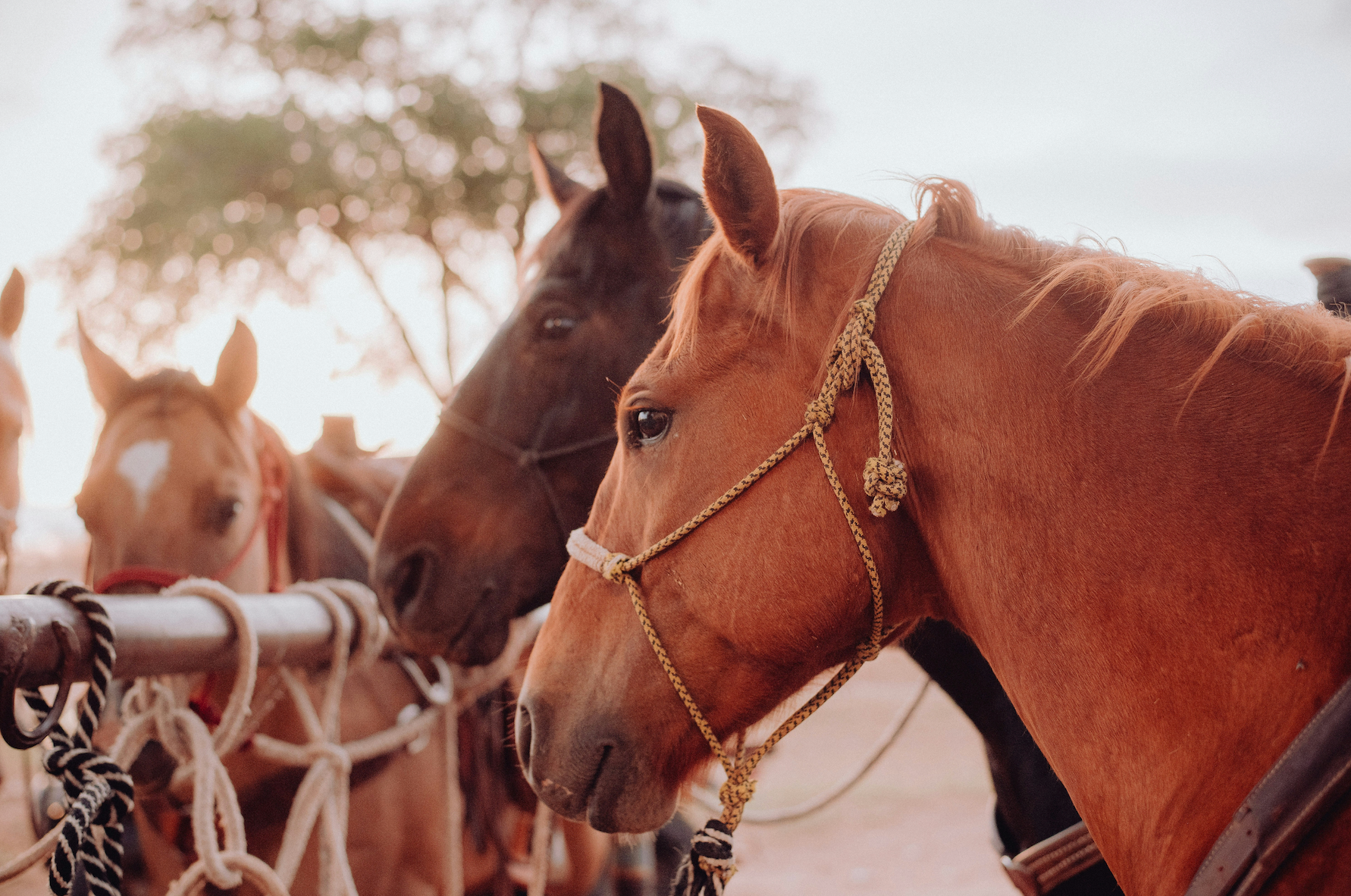In recent decades, researchers have come to understand that overall health is closely connected with gut health. This is as true for us as it is for our horses. A diet balanced in both macronutrients and micronutrients is key, but so is supporting the beneficial bacteria in the gut, which are responsible for synthesizing certain nutrients as well as supporting immune function.
In fact, more than 70% of the horse’s immune system can be found inside the gut.
When it comes to supporting gut health, there are three terms to be familiar with: prebiotics, probiotics, and postbiotics. Chances are you’ve heard of the first two by now, but you may not have heard of the third. Let’s dive into what each of these “biotics” are, as well as the role they play in your horse’s gut health and therefore, overall health.
Prebiotics for Horses
Prebiotics are described as “a selectively fermented ingredient that results in specific changes in the composition and activity of the gastrointestinal microbiota, thus conferring benefits upon host health.” (1)
To put that in layman's terms, prebiotics are essentially non-digestible fibers that act as food for the “good” or beneficial microbes in the gut.
Prebiotics move through the stomach and small intestine undigested until they reach the hindgut where bacteria ferment them. This fermentation process produces beneficial substances such as short-chain fatty acids.
Prebiotics not only act as food for these beneficial bacteria, helping them to thrive and outnumber bad bacteria, but they also provide energy for the cells that line the gut, thereby reducing inflammation and promoting good immune function.
With that said, there are many different types of prebiotics. They can be found in natural sources such as chicory root or yeast or synthetically-derived.
Three common prebiotics found in equine supplements include fructooligosaccharids (FOS), mannan-oligosaccharides (MOS), and trans-galactooligosaccarides (TOS). Each provides somewhat different benefits, so some supplements contain a combination of these.
→The 6666 Complete Gut Protection includes yeast extract, in addition to beta-glucans, as two sources of prebiotics.←
Probiotics for Horses
The horse’s gut contains trillions of beneficial bacteria, yeast, and fungi that work to break down food, extract nutrients, and keep the digestive system working well. When this community of microbes is balanced (meaning the bad microbes don’t outweigh the good), digestion, immune system regulation, and even behavior are positively impacted.
However, because the good microbes can become depleted due to stress, environmental toxins, and medications such as antibiotics, they may need to be supplemented. This is where probiotics come into play.
Probiotics are live microorganisms that, when supplemented in adequate amounts, provide a health benefit to the host. (2)
By adding a high-quality probiotic supplement to your horse’s diet, you are introducing new, beneficial bacteria and yeast into the gut.
Probiotics can be especially helpful during periods of stress, digestive upset, or after a round of antibiotics. Keep in mind that something as simple as a diet change can cause stress within the digestive system, so this is also a good time to include a probiotic supplement.
When choosing a probiotic supplement, look for one that contains strains of bacteria that are known to be beneficial for horses. These include Lactobacillus, Bifidobacterium, and Enterococcus species. The product should also contain a high number of these live bacteria in order to have an effect on the gut.
→Saccharomyces boulardii (labeled as Saccharomyces cerevisiae) is the most researched and proven yeast probiotic available for horses, which is why this is included in the 6666 Complete Gut Protection.←
Postbiotics for Horses
Postbiotics include any substances that are released by or produced through metabolic activity of gut microorganisms, which have a beneficial effect on the host. (3)
In other words, postbiotics are the products left behind after the body digests prebiotics and probiotics. Examples include nutrients like vitamins B and K, amino acids, and antimicrobial peptides that slow the growth of harmful bacteria.
Though postbiotics are produced naturally in the body under the right circumstances, they can also be added to feeds and supplements in order to further benefit the horse.
→You know that postbiotics are included when you see “Saccharomyces cerevisiae fermentation product” on the label; The 6666 Complete Gut Protection includes postbiotics.←
Why Are Postbiotics Important?
Postbiotics play an important role in the immune system, especially for young animals/people. They positively impact gut barrier tightness (to reduce risk of leaky gut) and the intestinal ecosystem. Indirectly, they help to shape the structure of the gut microbiota. In fact, researchers believe postbiotics may be useful in treating and preventing many diseases.
Postbiotics are important because, like pre and probiotics, they have a beneficial health effect on the host. This is why we include them in 6666 Complete Gut Protection.
How Postbiotics Aid in Joint Health
Because gut health is closely linked with overall health, this means that prebiotics, probiotics, and postbiotics can all play a role in joint health as well. Researchers have established that mitochondrial dysfunction is a hallmark of osteoarthritis (OA), and they are learning that postbiotics can positively impact joint mitochondrial health, slow OA disease progression, and even improve pain stemming from OA.
Studies have shown that postbiotics provide an anti-inflammatory effect in tissues. Because of research like this, we’ve also included postbiotics in our 6666 Joint Health.
To Sum It Up
Pre-, pro-, and postbiotics all play different, yet important, roles in supporting gut health. Prebiotics feed the good bacteria already living within the gut, while probiotics add new beneficial microorganisms to this colony in order to maintain proper balance. Postbiotics, on the other hand, are the fermentative end-products that provide nutrition not only to the gastrointestinal system, but the whole body.
By looking for equine supplements that contain all three “biotics”, you have the best shot at providing the most comprehensive gut support for your horse.
Remember, prebiotics + probiotics = postbiotics. And all three create an equal equation.
→Your horse’s gut will be completely covered with the 6666 Complete Gut Protection. Order today and get started on the journey!←
Read More:


